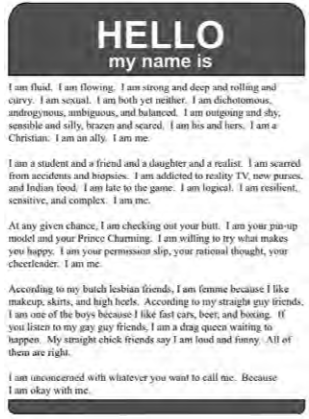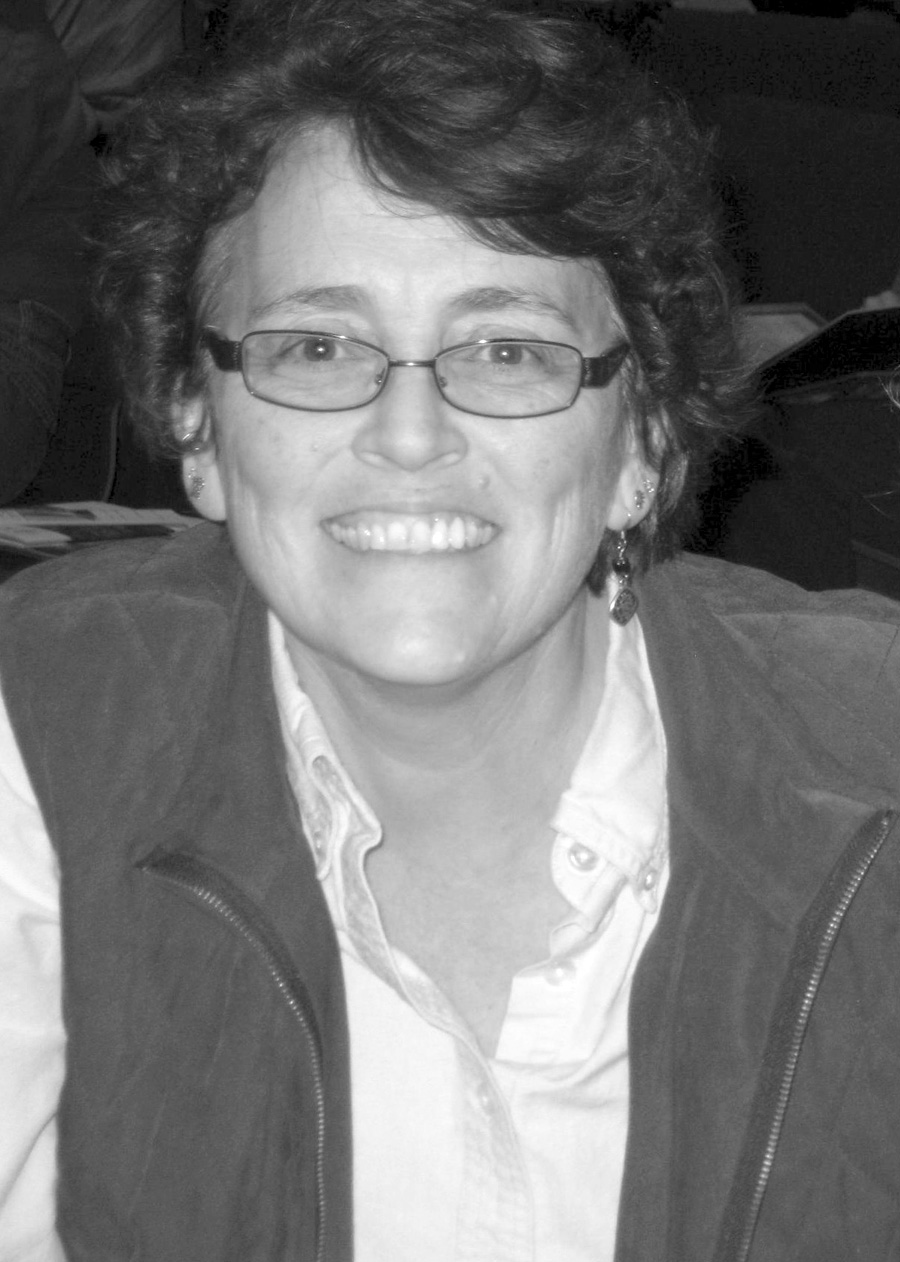By Ellyn Ruthstrom
As the current President of an organization that identifies itself with the b-word, the Bisexual Resource Center, I’ve been becoming increasingly aware of the fact that the word bisexual is not the descriptor of choice of many people whose experiences are similar to people who do identify as bisexual. So I took the opportunity to ask a whole bunch of people who went to a conference with bisexual in the title (BECAUSE, see article on page 1) to ask them more about how they identify and see if we can all work together even if we call ourselves different things. The title of the workshop was the same as the title of this article. It turned into a fascinating discussion.
Something that I have found to be true of many bisexuals is that we hate to be labeled. Yeah, I know, everybody says they hate labels, but bisexuals really seem to have a deep aversion to the whole concept. Being boxed into a word is as fear provoking as being boxed into a monosexual world. A label suggests that what you are describing is static enough to enable you to determine its characteristics and it won’t change enough to merit another label. How could that be true… or even desired…of your sexuality? How could you know who in your lifetime will turn you on, will open you up to true intimacy, will be able to understand you and all your flaws? There is something about a bisexual mindset that resists prediction of cause and effect, and immediately senses the inadequacy of any word to simultaneously explain something and allow ambiguity to persist.
Wow, that was a little off the track of where I was going, but I kind of agree with myself so I’ll leave it at that.
I kicked off the workshop by having the 30 or so people there shout out the various words they use to describe their sexuality.
95/5 girl ~ lesbian-identified bisexual ~ genderqueer ~ ambisexual ~ sexual ~ no label ~ AC/DC ~ pomosexual ~ trans ~ heterosexual ~ homoflexible ~ queer ~ pansexual ~ fembi ~ bisexual ~ tomboy ~ open ~ heteroflexible ~ trysexual ~ omnisexual
It was interesting to see the variety of terms mentioned. Some people shared their identity paths, noting that different experiences in their lives prompted them to need a different word to describe themselves. Sometimes the way they defined themselves was determined by whom they were talking to, depending on what the other person understood and how much educating they felt like doing at that moment.
One person brought up how she had become uncomfortable describing herself as bisexual after having a relationship with a transgender person and coming to a different understanding of sex and gender. If she didn’t believe there were only two sexes, how could she use a term that has “bi” or “two” in it? Several folks nodded in agreement.
This was finally what I was hoping to get at. In the last few years a schism has developed—especially between younger people and with those who have identified as bisexual for a number of years—about how “bi” does not encompass the reality of there being more than two sexes. An awareness of transgender issues has become much more prevalent all around, but especially with younger people, and they want to reflect that different understanding in their choice of language.
Here’s one of the issues that I brought into our discussion: Older bisexuals followed their own paths of discovery and found comfort and passion for a term that opened up a supportive community with which to identify. It’s difficult to use a term to describe yourself for a long time and then be told you really should call yourself something else. (I’m simplifying this, but it can feel that way.) Meanwhile, it’s a very “natural” (using the term lightly) thing for younger people to want to find their own language to describe their experiences and to want to distinguish themselves from the older generations. New information and experiences inform their identity development and they come up with different choices of words and meaning. They aren’t attached to the same words, so they can come up with something fresh and exciting.
Both of these perspectives were present in the room that day and are very much a part of our community discussions right now. Both perspectives are valid. So then the next question is, if we call ourselves by different names can we still build a movement together? If an organization such as the Bisexual Resource Center uses the term bisexual in its name will it turn people who use different identity labels off to it?
Tenured activist bis definitely hope that we can successfully build the bridge to unite us all. We’ve worked for over 25 years to create organizations, community, and culture that nurtures and respects the types of lives we choose to live. We really want to pass along the structures that we have built up to.
We know that the wheel isn’t the same shape or texture anymore and we need help in figuring out how to keep the wheel moving, but whether we call ourselves bisexual or queer or omnisexual or any other word, we hope to keep our community strong and vibrant for many years to come.
I was very cheered by the discussion in the workshop and the way that people expressed feeling a connection to each other, despite the different terms. I think it’s important to have these dialogues so that we can understand differing perspectives and still appreciate the overriding issues that unite our understanding of the world.

Another tenured activist at the conference told me that he had been envious of the younger generation that is getting a reputation for being much more accepting of GLBT people now. But then he went to a workshop where there were a lot of young bisexuals describing experiences of the same types of discrimination and biphobia that he had been fighting for the last 25 years. He wasn’t envious any more, just sad that these same issues will continue to bind us no matter what we call ourselves.
Cari is a 32-year-old Master’s Student at the University of Kentucky, who was finally honest with herself 3 months ago.

